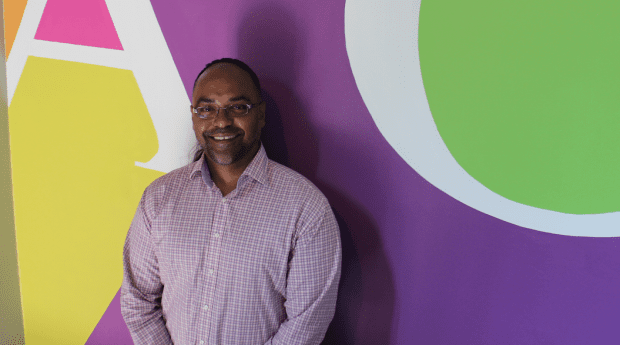The AIDS Committee of Ottawa (ACO) is celebrating its 30th anniversary with a commemorative book, a website and fundraising initiatives to draw attention to the accomplishments and challenges of the HIV/AIDS movement.
ACOXXX: Our Words, Our Stories, Our Lives is the ACO’s bilingual coffee table book that’s coming out on Sept 19 and explores three decades of the local, national and international HIV/AIDS movement. The name of the book, and its contents, were carefully chosen, says Khaled Salam, ACO’s executive director.
“We thought ACOXXX was very smart and clever in that the three x’s obviously imply three decades but also has this sex positivity undertone to it, which is one of our core values as an organization,” he says. “[The book] really pays homage to the last three decades in a way that is very easily digestible, in a way that people connect with.”
The book timeline draws attention to significant dates, from a 1981 New York Times article about a rare “gay cancer” to a 1983 cover story about AIDS in Time magazine. Local events, like the ACO being formed in 1985, stand next to international events, like the drug AZT being approved in 1987.
Beyond facts and figures, though, ACOXXX: Our Words, Our Stories, Our Lives draws attention to the people who stood up and did the work when the community was in crisis and resources were scant, Salam says.
“People were being shunned and ostracized and discriminated against by not only their own health care providers, but by their own family and friends, the people closest to them who were supposed to be their safety net and support network,” he says. “It’s pretty amazing how this movement was built on the backs of folks who were fearless, who were courageous and who were willing to find creative ways to support people who were dying of AIDS back then with little to no resources.”
With help from Watersource Creative and Skylarc Pictures, the book features photos and quotes from 38 people whose lives have been affected by HIV/AIDS, from the pioneers and trailblazers to people living with the virus and people working in the field today, Salam says.
Readers will learn about people like Barry Deeprose, who proposed the creation of ACO at a board meeting at Pink Triangle Services (now Kind) in 1985. The book recounts how he felt compelled to act when no one else was stepping up. David Hoe, the ACO’s first executive director, discusses how outraged he was by scientists underestimating the AIDS epidemic and by the Canadian government being slow to respond.
While the book provides an intimate view, a website (www.aco-xxx.com) which also launches on Sept 19, will give people access to an online version of the book, along with video interviews.
Great care was taken to reflect the diversity of the individuals and communities affected by HIV/AIDS, but ultimately it’s an incomplete picture, Salam says.
“Lots of people have died who were part of this movement in the early days, so we can never do this 100 percent justice,” he says. “It’s important for us to acknowledge that piece, that this is our humble attempt to do it some level of justice and to ensure that we are paying, in our best way possible, tribute to the pioneers of the movement, tribute to people who have passed away and tribute to people who are courageously battling HIV/AIDS today.”
What stands out to him most about both the early days and the present-day challenges is the prevalence of stigma, he adds.
“Because sex and drugs are so highly stigmatized in our society, HIV/AIDS continues to be highly stigmatized,” Salam says. “Then there are so many different layers when it comes to homophobia, when it comes to racism.”
Along with honouring the ACO’s history, the legacy project is an attempt to educate the community about HIV/AIDS and introduce the ACO to community members who don’t know much about the organization, he says.
“The AIDS Committee of Ottawa has always existed in this little bubble in the past,” Salam says. “We have worked together with community partners and other community activists but not necessarily with the larger Ottawa community. When it comes to stigma and discrimination we can’t ultimately win that battle if we don’t connect with the larger community and start educating and doing awareness raising.”
Having a new space, increasing ACO’s public profile and taking part in Doors Open Ottawa this summer is part of the organization’s effort to reach out to the broader community, he says. And you can’t discount the importance of fundraising.
Launched on Aug 19 and continuing until Sept 19, the ACO’s 30-30-30 fundraising campaign aims to have people clear up their clutter for a good cause, Salam says.
“We are asking everyone to donate 30 pounds of used goods from their home to any Value Village location in Ottawa or Gatineau,” he says. “30 days of giving, 30 pounds of giving to support 30 years of ACO.”
While fundraising will always be a priority, the resources that the ACO has today is thanks to all the work and courage of the founders and pioneers of the organization, Salam says. Hearing how Deeprose and other community members supported each other and pushed ahead despite incredible odds is inspiring, he adds.
“Hearing those stories, I think that’s what opened up my eyes and it also lights a fire in my belly and motivates me to do the work better and stronger than before,” he says.
ACOXXX: Celebrating 30 years of Our Community
Saturday, Sept 19, 2015, 3–11pm
St Elias Conference & Banquet Facility, 750 Ridgewood Ave, Ottawa
Event includes AGM, book launch, dinner and dance party


 Why you can trust Xtra
Why you can trust Xtra


